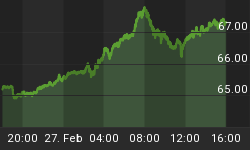So much for hope that Euro-zone growth will improve in Q3. Data releases from Germany today underline the fact that the 'zone's powerhouse economy is flirting with a technical recession, and the details of those releases point to negative developments for the Euro-zone as a whole.
Chart 1
The Ifo business climate index for August dropped to 94.8 from 97.5 in July, the weakest since June 2005. While this is still well above the lows recorded in late 2002, the last time Germany was headed into recession, the speed of the recent fall is disconcerting. Coming hard on the heels of last month's plunge, the August fall brings the two-month decline to 7.5 points, the sharpest since reunification in 1990. The gauge of current conditions slipped from 105.6 to 103.2 while the expectations index dropped from 89.9 to 87.0, its lowest since February 1993. And, the sub-component on manufacturing fell from +2.0 in July to a surprisingly-weak -6.8 in August.
Today also brought confirmation of negative real GDP growth in Q2, with a contraction of 0.5% on the quarter (+3.1% on the year), weighed down by weaker private consumption and investment. Consumer spending was down 0.4% q-o-q, and although trade actually made a positive contribution to Q2 GDP this was only because imports fell by more than exports. Gross capital investment was also down 0.4%, although mostly thanks to the contraction in construction investment, with equipment investment unchanged on the quarter. This at least raises the hope that there is not a massive level of overcapacity that needs to be worked off, and that investment will recover by the end of this year.
Finally, GfK's forward-looking consumer sentiment indicator fell to a new five-year low of 1.5 going into September, from a downwardly-revised 1.9 in August. While this is still above zero, signaling that private consumption growth should remain positive year-over-year, the trend is downward. With investments weakening and investment stalling, this underscores the risk that Germany will suffer a second consecutive quarter of negative real GDP growth in Q3, i.e., a technical recession.
And where does this leave the Euro-zone? Today's Ifo release noted that German companies see a weaker export outlook. However, as noted last week, the latest Belgian National Bank business confidence index (a leading indicator for Euro-zone growth about six months out), had pointed to a more hopeful outlook for the 'zone. Recall that the August reading nudged up to -5.9 from -7.6 in July. While the retail sales sub-component had dropped even further, from -12.5 to -14.2, the manufacturing sub-component had improved from -8.1 to -5.6.
So, the bad news is that the Euro-zone will almost certainly see a second quarter of contraction in Q3, with Germany, France, and Italy headed that way and Spain almost certain to drop into negative territory too. The good news is that, for now at least, it looks as if the 'zone will stall rather than fall right off a cliff, implying signs of recovery could crop up by the end of this year. But watch those leading indicators.















